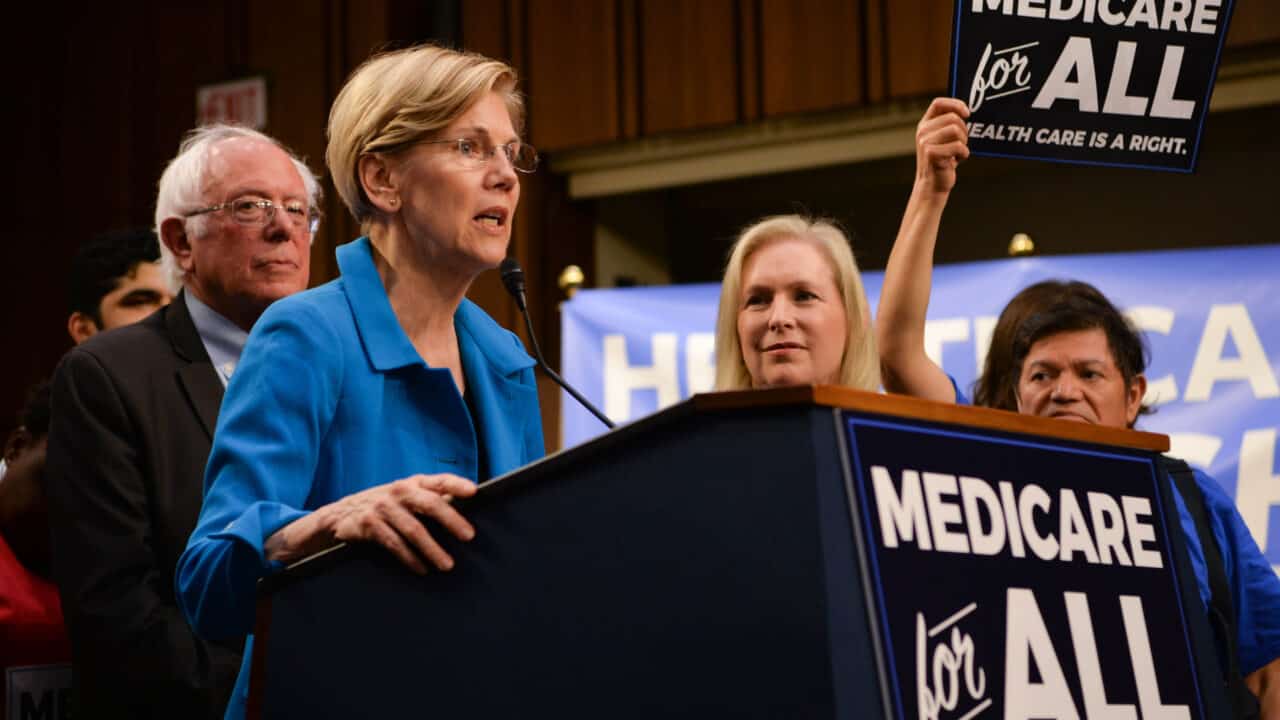 Warren Medicare for All by Senate Democrats is licensed under CC BY 2.0
Warren Medicare for All by Senate Democrats is licensed under CC BY 2.0
The Senate Budget Committee recently held a hearing on moving toward a socialist healthcare system, also known as Medicare for All.
While progressives like Committee Chairman Bernie Sanders (I-Vt.) used this hearing to call for a radical overhaul of the healthcare system, Republicans rightly pointed out how this proposal would eliminate private insurance and designate the government as the sole healthcare provider. This policy would reduce the quality and restrict access to healthcare while requiring massive tax hikes in the process.
Click here to view ATR’s letter to Senate Budget Committee opposing socialized healthcare.
To implement the Medicare for All program that Senator Sanders and other far left progressives are pushing, middle-class taxpayers would see massive tax hikes. Senator Sanders has even admitted this directly, noting that a Medicare for All healthcare system would be extremely costly and require Americans tax bills to go up.
In his opening remarks, Ranking Member Lindsey Graham (R-S.C.) noted the unpopularity of the program when voters learn it will require drastic tax increases. Senator Graham cited a Kaiser Family Foundation study that showed when Americans are aware that a Medicare for All program would require most Americans to pay more in taxes, they oppose the program by a margin of 60 to 37 percent.
It has been estimated that Medicare for All would cost anywhere between $28-32 trillion over a decade and include roughly $11 trillion in tax increases. Even with these massive tax hikes, a substantial portion of Medicare for All would be unfunded and require more aggressive tax hikes or excessive government borrowing.
The proposal includes a 70 percent top tax rate for both individual and capital gains income. The Center for a Responsible Federal Budget has shown these tax hikes will push top marginal tax rates above their revenue-maximizing levels, reduce incentives to work and invest, and slow economic growth. It’s quite likely these tax hikes will go beyond the “revenue-maximizing rate” where the government receives the most revenue possible and any level beyond that rate would diminish the revenue collected through the tax. The Congressional Budget Office, The Joint Committee on Taxation, and even the left-leaning Tax Policy Center estimate the revenue-maximizing level is somewhere around 28 percent meaning the proposed tax hikes would actually decrease government revenues.
The proposal also includes increases to both the employee and employer payroll tax, with increases of 4 and 7 percent, respectively. This 4 percent employee payroll tax would increase taxes on American families by $3.9 trillion while the 7 percent employer payroll tax would cost employers $3.5 trillion over 10 years.
During the hearing, Director of the Congressional Budget Office Phillip Swagel noted that GDP would be approximately 1 to 10 percent lower by 2030 due to the increased taxes on labor and capital income necessary to fund the program.
In its totality, it’s estimated this program would raise taxes by $26,000 per household per year. In a time of four-decade high inflation where less than half of business owners expect better business conditions over the next six months, the last thing we need is a greater tax burden on American families and businesses.
This system would also have disastrous impacts on the quality and availability of care in the United States. Medicare for all would eliminate the employer-based coverage which more than 181 million Americans utilize, and would force Americans into a one-size-fits-all healthcare system run by Washington. A Congressional Budget Office report determined that under a single-payer system patients can expect “increased wait times and reduced access to care.”
During the hearing, Senator Rick Scott (R-Fla.) addressed the extensive waiting times we’ve seen in other countries with single-payer healthcare systems. Witness Grace-Marie Turner of the Galen Institute referenced a study by the Fraser Institute that found the median wait time in Canada was around 25.6 weeks. These longer wait times can have drastic effects on the health of citizens. Nearly 30 percent of cancer patients in England didn’t start treatment within 62 days despite an urgent referral by their primary care doctor.
The availability of care will also see reductions under a single-payer system. In 2018, the UK’s National Health System (NHS) restricted access to 17 medical operations which they deemed ‘unnecessary’ for the primary purpose of reducing costs. A single-payer system allows the government to decide which operations you’re worthy of receiving and eliminates individuals’ private choice to make the medical decisions that they feel are best suited to them.
Progressives’ Medicare for All proposal would destroy the U.S. economy through new tax hikes on middle class families while simultaneously reducing access and availability of care in the United States.

